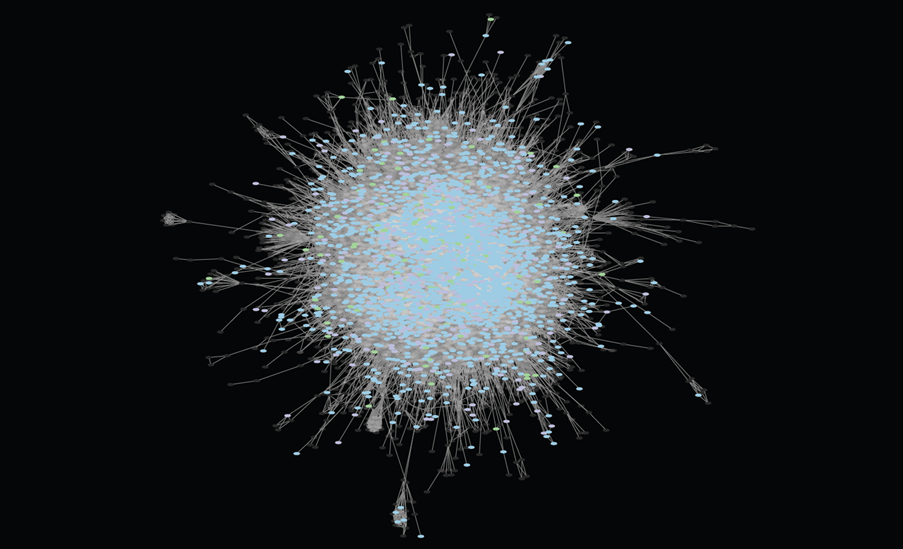kaylee beine
Project
Anthropogenic global warming is manifested through increases in climatic heat events. These events are one of the major drivers of mass mortality in all animal groups. There are gaps in our knowledge regarding the propagation of thermal stress across species and where the stress response either to heat itself or to heat mediated stress communication is located within functional genomic networks. This project is a collaboration with Dr. Alex Turner at the University of Nottingham, with my contribution being to determine where in the genomic network stress response and adaptation take place and whether this is similar across three unrelated species.
Anthropogenic global warming is manifested through increases in climatic heat events. These events are one of the major drivers of mass mortality in all animal groups. There are gaps in our knowledge regarding the propagation of thermal stress across species and where the stress response either to heat itself or to heat mediated stress communication is located within functional genomic networks. This project is a collaboration with Dr. Alex Turner at the University of Nottingham, with my contribution being to determine where in the genomic network stress response and adaptation take place and whether this is similar across three unrelated species.
Kaylee’s Background
All my education has been at the University of Johannesburg in South Africa. Following a B.Sc. in Environmental Science with a specialisation is Zoology and Human Physiology (2015 – 2017), I completed an Honours of Sci. in Zoology in 2018. My master’s project, completed in 2020, was a continuation of my honours project in which I exposed Mozambique tilapia (Oreochromis mossambicus) to vanadium pentoxide. I studied the metal bioaccumulation and lethal concentration of V2O5 and determined the physiological harm of V2O5 on Oreochromis mossambicus through a suite of biomarkers of exposure, effect and energetics.
My Ph.D. in Zoology was passed in August of 2023, it focused on the effects of climate change on two mussel species along the rocky shore of South Africa. The study focused on thermal stress in Perna perna and Mytilus galloprovincialis in which the Arrhenius breakpoint temperature was determined for both species from two different South African coastal regions. The study included physiological observation in response to heat stress through heart rate analysis, and a biomarker response through measuring heat shock protein 70, and determining the metabolic respiration, oxidative stress and oxidative damage. It was through my Ph.D. research that I found a passion in climate change research and an enhanced drive to protect biodiversity.
I am very fortunate to have been awarded a post-doctoral fellowship by Prof. Katharina Wollenberg Valero taking place at the University College Dublin. This post-doctoral fellowship is allowing me to vastly increase my knowledge of bioinformatics and pursue my love of biology, programming and AI at UCD.
All my education has been at the University of Johannesburg in South Africa. Following a B.Sc. in Environmental Science with a specialisation is Zoology and Human Physiology (2015 – 2017), I completed an Honours of Sci. in Zoology in 2018. My master’s project, completed in 2020, was a continuation of my honours project in which I exposed Mozambique tilapia (Oreochromis mossambicus) to vanadium pentoxide. I studied the metal bioaccumulation and lethal concentration of V2O5 and determined the physiological harm of V2O5 on Oreochromis mossambicus through a suite of biomarkers of exposure, effect and energetics.
My Ph.D. in Zoology was passed in August of 2023, it focused on the effects of climate change on two mussel species along the rocky shore of South Africa. The study focused on thermal stress in Perna perna and Mytilus galloprovincialis in which the Arrhenius breakpoint temperature was determined for both species from two different South African coastal regions. The study included physiological observation in response to heat stress through heart rate analysis, and a biomarker response through measuring heat shock protein 70, and determining the metabolic respiration, oxidative stress and oxidative damage. It was through my Ph.D. research that I found a passion in climate change research and an enhanced drive to protect biodiversity.
I am very fortunate to have been awarded a post-doctoral fellowship by Prof. Katharina Wollenberg Valero taking place at the University College Dublin. This post-doctoral fellowship is allowing me to vastly increase my knowledge of bioinformatics and pursue my love of biology, programming and AI at UCD.





